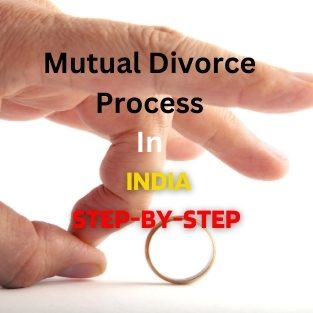What Are The Legal Requirements For Getting Married In India this questions comes in mind of many people. As getting married is a significant step in life, full of joy and legal formalities. In India, marriage not only unites two hearts but also involves adhering to certain legal requirements. Understanding these requirements ensures your marriage is recognized by law, providing rights and obligations to both partners. Let’s simplify the legal landscape of getting married in India.
What Are The Legal Requirements For Getting Married In India?
Eligibility Criteria
Age Requirement
In India, the law is clear about the age at which individuals can get married. For men, the legal age is 21 years and above, and for women, it’s 18 years and above. This age limit ensures both parties are mature enough to undertake marriage responsibilities.
Voluntary Consent
Consent is the foundation of any marriage. Both individuals must willingly agree to the marriage without any force or coercion. The law protects individuals’ rights to choose their life partners freely.
Mental Capacity
The law requires both individuals to have the mental capacity to understand the nature of the marriage contract. This means they should be capable of making sound decisions and understand the implications of getting married.
Legal Formalities
Marriage Registration
Registering your marriage is a crucial step. It involves filling out a form and submitting it to the Registrar of Marriages. You’ll need to provide:
- Proof of age and residence
- Passport-sized photos
- Application form filled by both parties
Depending on your religious practices, you can register your marriage under the Hindu Marriage Act, 1955, or the Special Marriage Act, 1954, for inter-religion or inter-caste marriages.
Witnesses
At the time of registration, you’ll need witnesses. Typically, two witnesses are required, who can be friends or family members. They must provide their identification as part of the process.
Ceremonial Requirements
While the legal formalities are crucial, India is a land of diverse cultures and traditions. Many couples also opt for religious or customary ceremonies. However, it’s important to note that a ceremonial wedding without legal registration might not be recognized by law.
Interfaith and Inter-Caste Marriages
For couples from different religions or castes, the Special Marriage Act, 1954, facilitates the marriage process. It allows for a civil marriage, ensuring the union is legally recognized irrespective of religious or caste differences.
Conclusion
Getting married in India is a blend of traditional ceremonies and legal formalities. The legal requirements ensure the protection and rights of both individuals entering into marriage. By understanding and completing these requirements, couples can ensure their union is recognized and respected by law. Remember, marriage is not just about the big day but also about fulfilling these legalities to build a secure future together.
FAQs on Legal Requirements for Getting Married in India
1. What is the legal age for marriage in India?
- For men, it’s 21 years and above, and for women, it’s 18 years and above.
2. Is consent necessary for marriage?
- Yes, both parties must willingly consent to the marriage without any form of coercion.
3. Can foreigners get married in India?
- Yes, foreigners can get married in India under the Special Marriage Act, 1954, but must fulfill certain residency requirements.
4. What documents are needed for marriage registration in India?
- Proof of age and residence, passport-sized photos, and a completed application form.
5. How many witnesses are required for marriage registration?
- Typically, two witnesses are needed at the time of registration.
6. Can I register my marriage online in India?
- Some states offer online registration, but you must visit the registrar’s office to complete the process.
7. Is a religious ceremony required for marriage to be legal in India?
- No, a legal registration is sufficient for a marriage to be recognized by law.
8. What is the Special Marriage Act, 1954?
- It’s a law that provides a legal framework for interfaith or intercaste marriages in India.
9. Do I need to change my name after marriage?
- It’s a personal choice. Indian law does not mandate a name change after marriage.
10. How long does the marriage registration process take?
- It can vary, but typically it takes about 30 days from the date of application.
11. Can same-sex couples get married in India?
- As of my last update, same-sex marriages are not legally recognized in India.
12. What is the difference between the Hindu Marriage Act and the Special Marriage Act?
- The Hindu Marriage Act applies to Hindus, while the Special Marriage Act is for interfaith or intercaste marriages.
13. Is a court marriage different from other marriages?
- Court marriage refers to marriage solemnized under the Special Marriage Act, focusing on legal formalities rather than religious ceremonies.
14. Can I marry someone from a different religion?
- Yes, under the Special Marriage Act, 1954.
15. What if one partner is not an Indian citizen?
- They can still get married under the Special Marriage Act, but additional documentation might be required.
16. Are pre-marital health checks mandatory?
- No, but they are recommended for the well-being of both partners.
17. What is a no-objection certificate in marriage?
- It’s a document stating that there are no objections to the marriage, often required for foreigners marrying in India.
18. Can divorcees remarry in India?
- Yes, after the finalization of their divorce proceedings.
19. Is parental consent needed for adults marrying in India?
- Legal adults do not need parental consent, but it’s often sought for cultural reasons.
20. What happens if the marriage isn’t registered?
- The marriage might not be legally recognized, affecting rights and obligations.
21. How can I correct errors in my marriage certificate?
- Apply to the issuing authority with proof of the correct information.
22. Can NRIs (Non-Resident Indians) get married in India?
- Yes, following the same legal requirements as residents.
23. What are the legal consequences of not registering a marriage?
- It may affect inheritance, custody, and other legal rights.
24. Is a wedding ceremony necessary for legal marriage recognition?
- No, only the registration process is legally required.
25. Can I have both a religious ceremony and a civil marriage?
- Yes, many couples choose to do both.
26. How do I register an interfaith marriage?
- Through the Special Marriage Act, with all necessary documents.
27. What legal rights does a marriage registration provide?
- It ensures legal recognition of the marriage, affecting property, inheritance, and other rights.
28. Can a marriage be annulled in India?
- Yes, under certain conditions, such as non-consummation or fraud.
29. Are there any legal benefits to registering a marriage?
- Yes, it provides a legal document proving the marriage, useful for various legal processes.
30. How do I change my marital status in official documents?
- Submit a copy of the marriage certificate to the relevant authorities with an application.















